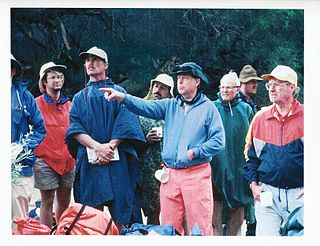Secretaries for Petroleum 1940-1942
| Name | Entered office | Left office |
|---|---|---|
| Geoffrey Lloyd | 15 May 1940 | 1942 |
The position of Secretary for Petroleum was an office in the United Kingdom Government, associated with the Board of Trade.
In 1929, the Secretary for Mines (now also defunct) took over responsibility for petroleum.
In 1939 the Petroleum Board assumed responsibility for the coordination of the petroleum 'pool' for oil supplies (except oil for the Royal Navy).
In 1940, the department was divided with Geoffrey Lloyd and Sir Alfred Faulkner becoming respectively Secretary and Permanent Under-Secretary for Petroleum and David Grenfell and Sir Alfred Hurst respectively Secretary and Permanent Under-Secretary for Mines.
On 11 June 1942, both these sub-departments of the Board of Trade were transferred to the new Ministry of Fuel and Power, then later the Department of Trade and Industry.
| Name | Entered office | Left office |
|---|---|---|
| Geoffrey Lloyd | 15 May 1940 | 1942 |

The secretary of state for the colonies or colonial secretary was the Cabinet of the United Kingdom's minister in charge of managing the British Empire.
Natural ResourcesCanada is the department of the Government of Canada responsible for natural resources, energy, minerals and metals, forests, earth sciences, mapping, and remote sensing. It was formed in 1994 by amalgamating the Department of Energy, Mines and Resources with the Department of Forestry.
The industry minister is a cabinet position in a government.
A private secretary (PS) is a civil servant in a governmental department or ministry, responsible to a secretary of state or minister; or a public servant in a royal household, responsible to a member of the royal family.
The position of Secretary for Mines was an office in the United Kingdom Government, associated with the Board of Trade.

Geoffrey William Geoffrey-Lloyd, Baron Geoffrey-Lloyd, PC, was a British Conservative politician.
The Ministry of Reconstruction was a department of the United Kingdom government which existed after both World War I and World War II in order to provide for the needs of the population in the post war years.
The Ministry of Power was a United Kingdom government ministry dealing with issues concerning energy.

Fred F. Meissner was an American geologist and engineer who contributed to the fields of geology, geophysics, engineering, petroleum engineering, geochemistry, mineralogy, physics, mining, economic geology, and fishing.
Carl Michael "Mike" Smith is an American businessman, energy expert, and politician from Oklahoma. Smith is currently serving as the Executive Director of the Interstate Oil and Gas Compact Commission. Smith has served in numerous energy policy positions for both the United States federal and Oklahoma state governments, including Assistant Secretary of Energy for Fossil Energy under President George W. Bush (2002–2004) and Oklahoma Secretary of Energy under Governor of Oklahoma Frank Keating (1995–2002).
Sir Alfred Edward Faulkner, CB, CBE was a British civil servant.
The Petroleum Authority of Uganda (PAOU), also known as the Uganda National Petroleum Authority, is governmental organisation that regulates the petroleum industry in Uganda, the third-largest economy in the East African Community. Its responsibilities include licensing, regulation, supervision of exploration, harvesting, refining, marketing, and disposal of petroleum products in the country. Although owned by the Ugandan government, it is expected to act independently.
The 1928 Birthday Honours were appointments by King George V to various orders and honours to reward and highlight good works by citizens of the British Empire. The appointments were made to celebrate the official birthday of The King, and were published in The London Gazette on 4 June 1928.
Zenaida Y. Monsada is a Filipino chemist who served as first woman Secretary of Department of Energy from July 2015 until July 2016. Prior to being appointed as Energy Secretary she served as DOE Officer-in-charge from May–July 2015. While serving as OIC, she was also the undersecretary for four bureaus of the Department of Energy, Electric Power Industry Management Bureau, Energy Resources Development Bureau, Oil Industry Management Bureau, and the Renewable Energy Management Bureau.

The secretary of state for business and trade (business secretary), is a secretary of state in the Government of the United Kingdom, with responsibility for the Department for Business and Trade. The incumbent is a member of the Cabinet of the United Kingdom.

The 1895 Prime Minister's Resignation Honours were announced in the British national press on 1 July 1895 following the resignation of Lord Rosebery's government on 22 June. The appointments to the Order of the Bath appeared officially in the London Gazette of 2 July.

The Department of the Permanent Secretary also formally known as the Department of the Permanent Secretary to the Admiralty or the Department of the Secretary was the Civil Service department responsible for the control, direction and guidance of all administrative functions of the British Admiralty from 1702 to 1964, it was headed by the Permanent Secretary to the Admiralty.

The Federal Ministry of Petroleum Resources is a part of the Federal Ministries of Nigeria that directs petroleum resources and its activities in Nigeria. The President, Bola Tinubu is the current minister of petroleum.
The Petroleum Board was a non-governmental organisation, established at the outbreak of World War II, to coordinate wartime supplies of petroleum and petroleum products throughout the United Kingdom. It was composed of senior executives of the major oil companies who operated an ‘oil pool’ with distribution controlled by the Board. The board was dissolved in June 1948 nearly three years after hostilities ended.